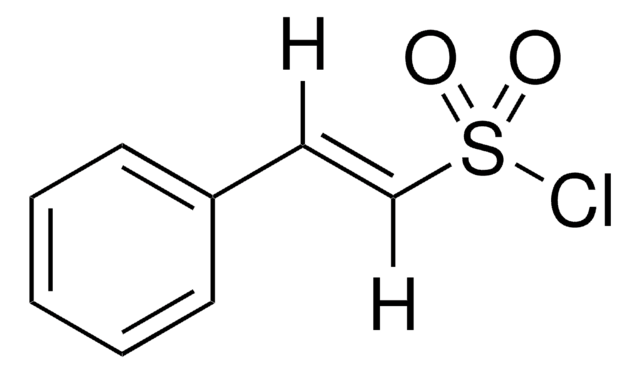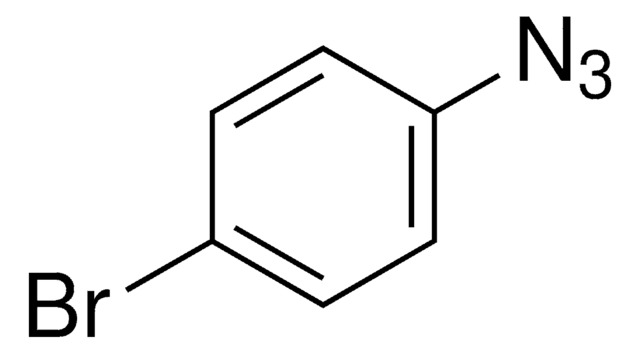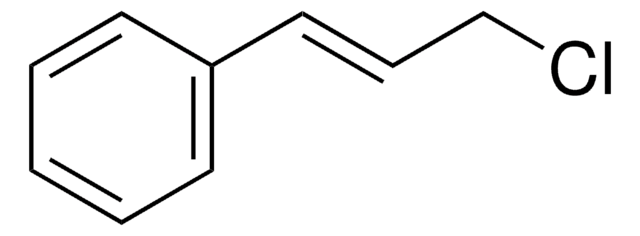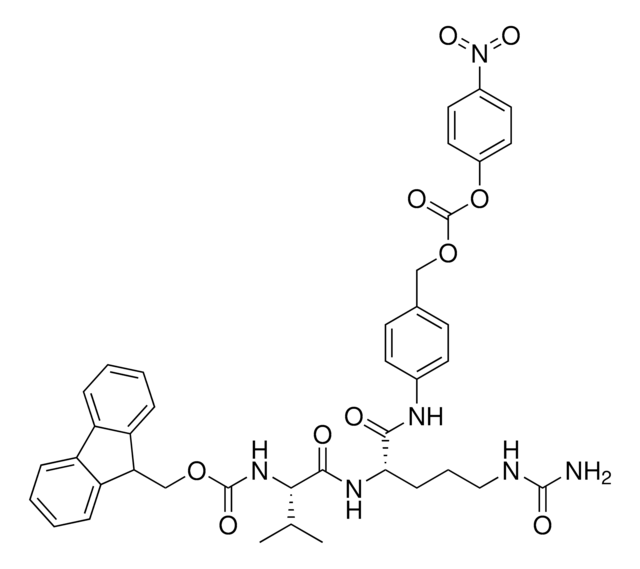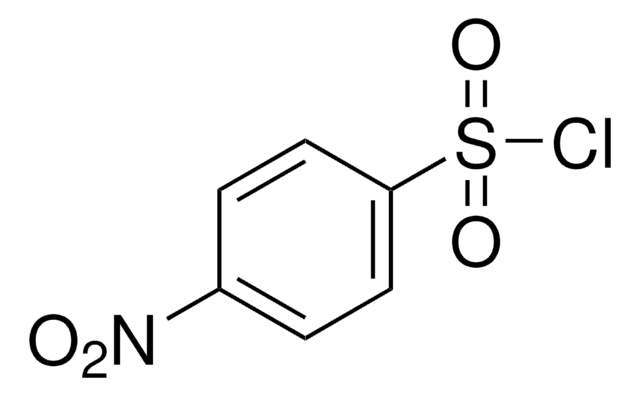779482
1-Azido-4-iodobenzene solution
0.5 M in tert-butyl methyl ether, ≥95% (HPLC)
Synonym(s):
4-Iodophenyl azide solution
Sign Into View Organizational & Contract Pricing
All Photos(1)
About This Item
Empirical Formula (Hill Notation):
C6H4IN3
CAS Number:
Molecular Weight:
245.02
Beilstein:
1939309
MDL number:
UNSPSC Code:
12352200
PubChem Substance ID:
NACRES:
NA.22
Recommended Products
Quality Level
Assay
≥95% (HPLC)
form
solution
concentration
0.5 M in tert-butyl methyl ether
impurities
≤2.0% water
storage temp.
−20°C
SMILES string
Ic1ccc(cc1)N=[N+]=[N-]
InChI
1S/C6H4IN3/c7-5-1-3-6(4-2-5)9-10-8/h1-4H
InChI key
FJOKWWVZXVTOIR-UHFFFAOYSA-N
Signal Word
Danger
Hazard Statements
Precautionary Statements
Hazard Classifications
Eye Irrit. 2 - Flam. Liq. 2 - Skin Irrit. 2 - STOT RE 1
Storage Class Code
3 - Flammable liquids
WGK
WGK 3
Flash Point(F)
-27.4 °F
Flash Point(C)
-33 °C
Choose from one of the most recent versions:
Certificates of Analysis (COA)
Lot/Batch Number
Don't see the Right Version?
If you require a particular version, you can look up a specific certificate by the Lot or Batch number.
Already Own This Product?
Find documentation for the products that you have recently purchased in the Document Library.
Labeling of hydrophobic polypeptides from the chick lens membrane.
L J Takemoto et al.
Experimental eye research, 35(5), 535-540 (1982-11-01)
M D Davison et al.
The Biochemical journal, 236(2), 389-395 (1986-06-01)
Opsin labelled with photoactivated 1-azido-4-[125I]iodobenzene was proteolysed in situ with Staphylococcus aureus V8 proteinase to yield two radioactive membrane-bound fragments. These were separated, cleaved with CNBr and the resultant peptides sequenced in order to locate the radiolabelled residues. In the
M E Haw
British journal of anaesthesia, 53(6), 577-584 (1981-06-01)
Xenopus laevis tadpoles were produced from wild-caught, laboratory-reared toads. Separate sets were fed on diets of (1) liver powder; (2) nettle powder; (3) aminosol and Intralipid. The tadpoles were reared for 3 weeks at 22 degrees C and then three
M D Davison et al.
The Biochemical journal, 234(2), 413-420 (1986-03-01)
The hydrophobic photosensitive probe 1-azido-4-[125I]iodobenzene (AIB) partitioned preferentially into photoreceptor disc membranes and, upon u.v. irradiation, became covalently bound to opsin and phospholipid. The labelling of both protein and phospholipid was linearly related to AIB concentration. The amount of probe
E Wells et al.
The Biochemical journal, 187(3), 719-725 (1980-06-01)
To investigate the intramembranous domains of the major band-3 polypeptide, human erythrocyte membranes were labelled with 1-azido-4-[125I]iodobenzene. The anion-exchange protein has been isolated by a new procedure that decreases possible contamination by other integral membrane proteins of similar molecular weight.
Our team of scientists has experience in all areas of research including Life Science, Material Science, Chemical Synthesis, Chromatography, Analytical and many others.
Contact Technical Service